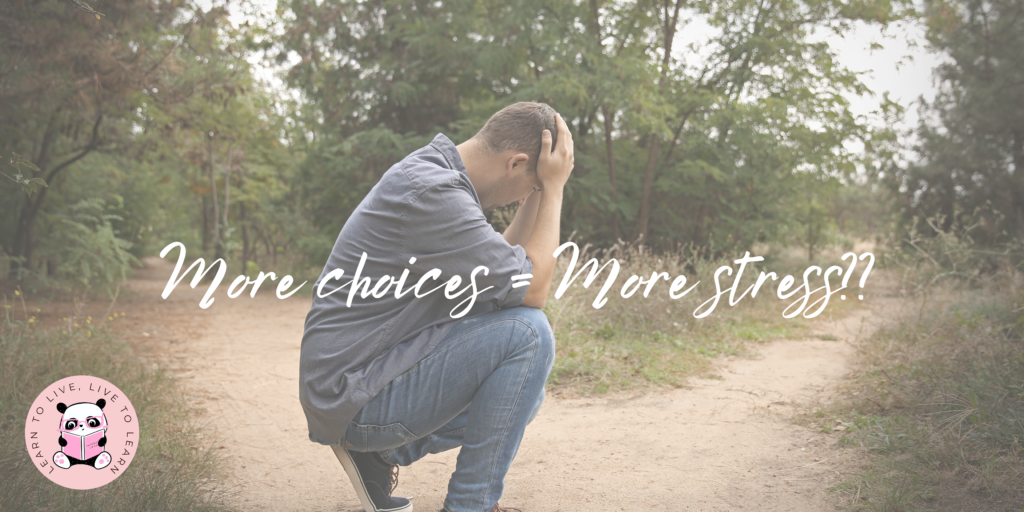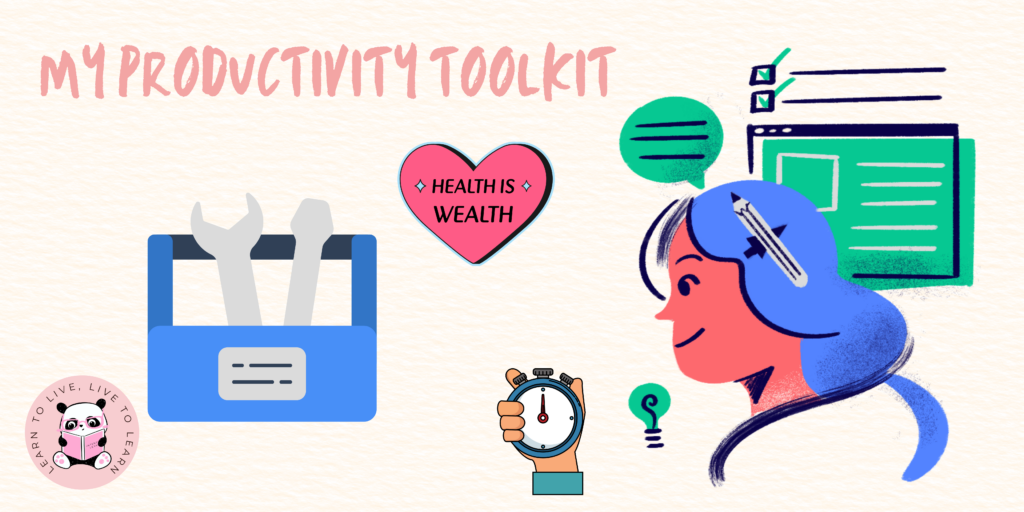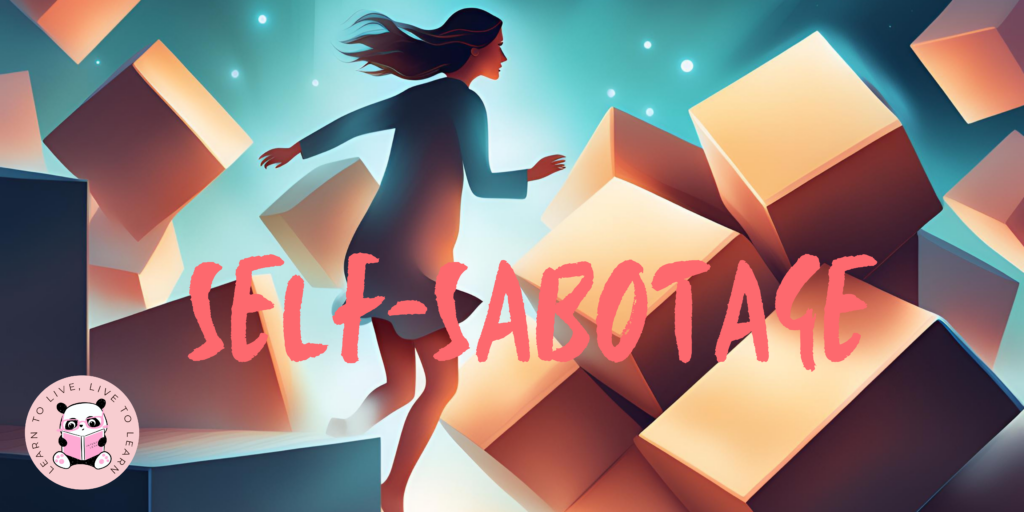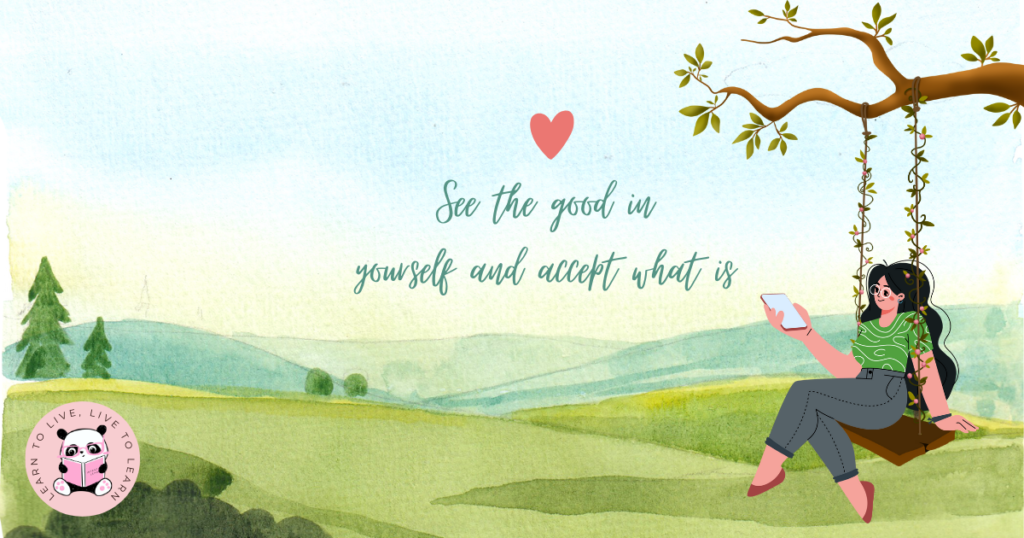The Paradox Of Choice: How Having Choices Stresses Us Out
Written by Michelle Ong | December 15, 2024

Too many options feel empowering—until they leave us stressed, second-guessing ourselves, and stuck in overthinking.
“Choice is a luxury when you know what you want. But when you don’t, it can be a curse.”
We assume more choices mean more freedom—but often, the opposite happens.
Too many options drain our mental energy, make us doubt ourselves, and slow down decision-making.
In our careers, that overwhelm can stall growth, delay opportunities, and make even simple decisions feel heavier than they should.
Our Biological System
Our brain runs on two modes, as Daniel Kahneman explains:
Fast system: intuitive, effortless
Slow system: analytical, energy-intensive
When choices multiply, the slow system kicks into overdrive—comparing, predicting, evaluating every angle. This leads to cognitive overload, which shows up at work as:
Taking too long to decide.
Overthinking simple tasks.
Second-guessing good decisions.
Mental fatigue that spills into performance.
Simplifying choices protects your energy, sharpens judgment, and keeps your career direction clear.
💡 If stress is piling up, here are some practical ways to cope better.
Beyond Skin Deep
1. Our brains can only handle a few options
We operate best with 3–5 choices. Anything more dilutes focus and slows thinking. That’s why:
Endless scrolling feels tiring.
We jump between options instead of committing.
We feel unsure even after choosing.
This isn’t incompetence—it’s how the brain is built. Once you understand this, you start designing your work and decisions more intentionally.
2. Our brains get influenced by appearance
A prettier snack feels more appealing even if it tastes the same.
The same happens at work:
A job title looks attractive—even if the role isn’t.
A shiny project seems exciting—even if it’s not aligned.
A team appears glamorous—even if the culture isn’t right.
Awareness helps you choose based on values, not surface-level signals.
3. Our brains love short-term wins
We naturally choose the quick fix over long-term reward:
The fast promotion vs. the right fit.
The easy project vs. the one that builds skills.
The job with instant perks vs. the one with long-term growth.
The more stressed we are, the more likely we choose immediate relief over meaningful progress.
Simplifying choices helps you stay aligned with what truly serves your career—not what just feels good in the moment.
Chasing After Potential
Too many options create the illusion that the perfect choice is always the next one. This keeps us chasing:
The “better” job.
The “better” role.
The “better” team.
The “better” opportunity.
But endless chasing leads to rising expectations and falling satisfaction.
Comparison becomes the default—especially when everyone’s achievements are on display online.
Anchoring bias also distorts judgment.
One extreme option makes others seem better than they are.
This is why defining your personal “enough” is essential for career clarity.
When you know what you value, choices stop feeling like traps.
💡 Here’s how to find your “enough” and simplify your life.
Fear Is Formidable
Barry Schwartz in his book The Paradox of Choice put it well:
“The more choices we have, the more we fear making the wrong one.”
More choices create more fear—three kinds:
1. Fear of choosing wrong
Loss aversion pushes us toward “safe” choices, even when bold ones would grow us more.
This is how careers stagnate—not from lack of skill, but from fear disguised as caution.
2. Fear of missing out
When many options look good, we worry about what we’re giving up.
This creates “if only” thinking and endless comparison loops.
3. Fear of regret
Too many choices trigger perfectionism.
Avoiding decisions feels safer than risking a “bad” one.
But indecision slows growth and unintentionally hands your professional autonomy to others.
Reducing choices reduces fear. Reduced fear increases clarity.
What Is The ‘Right’ Choice?
Our brains prefer what’s familiar.
That’s why big changes—new roles, new industries, stretch projects—feel intimidating even when they’re aligned with long-term goals.
Add fear of regret and social pressure, and it becomes even harder.
Marketing, comparison, and expectations amplify the noise. Suddenly every option feels urgent.
This leads to clutter, rushed decisions, and choices that don’t truly serve us.
The real question becomes:
“Is this what I genuinely want—or am I reacting to pressure, fear, or FOMO?”
Clarity—not abundance—is the foundation of good decision-making.
Still, It’s Good To Have Options
Choices can overwhelm, but having no choice creates helplessness.
The sweet spot is having a few, meaningful options.
This gives you:
Flexibility without paralysis.
Space to experiment.
Freedom to make mistakes.
Confidence to choose again if needed.
Fewer but better choices also reduce perfectionism—supporting agility and long-term growth.
Final Thoughts
Freedom isn’t about having endless choices—it’s about knowing what to choose.
You don’t need fewer opportunities.
You need clearer priorities, a simpler decision-making system, and a better understanding of what truly matters to you.
When your values are clear, choices become easier.
When choices are easier, your career accelerates.
💡 For more, explore practical ways to refine your decision-making and avoid common traps.
🌱 Reader Reflection
What is one decision in your life right now where you’re overwhelmed by too many options—and what matters most to you in making that choice?


